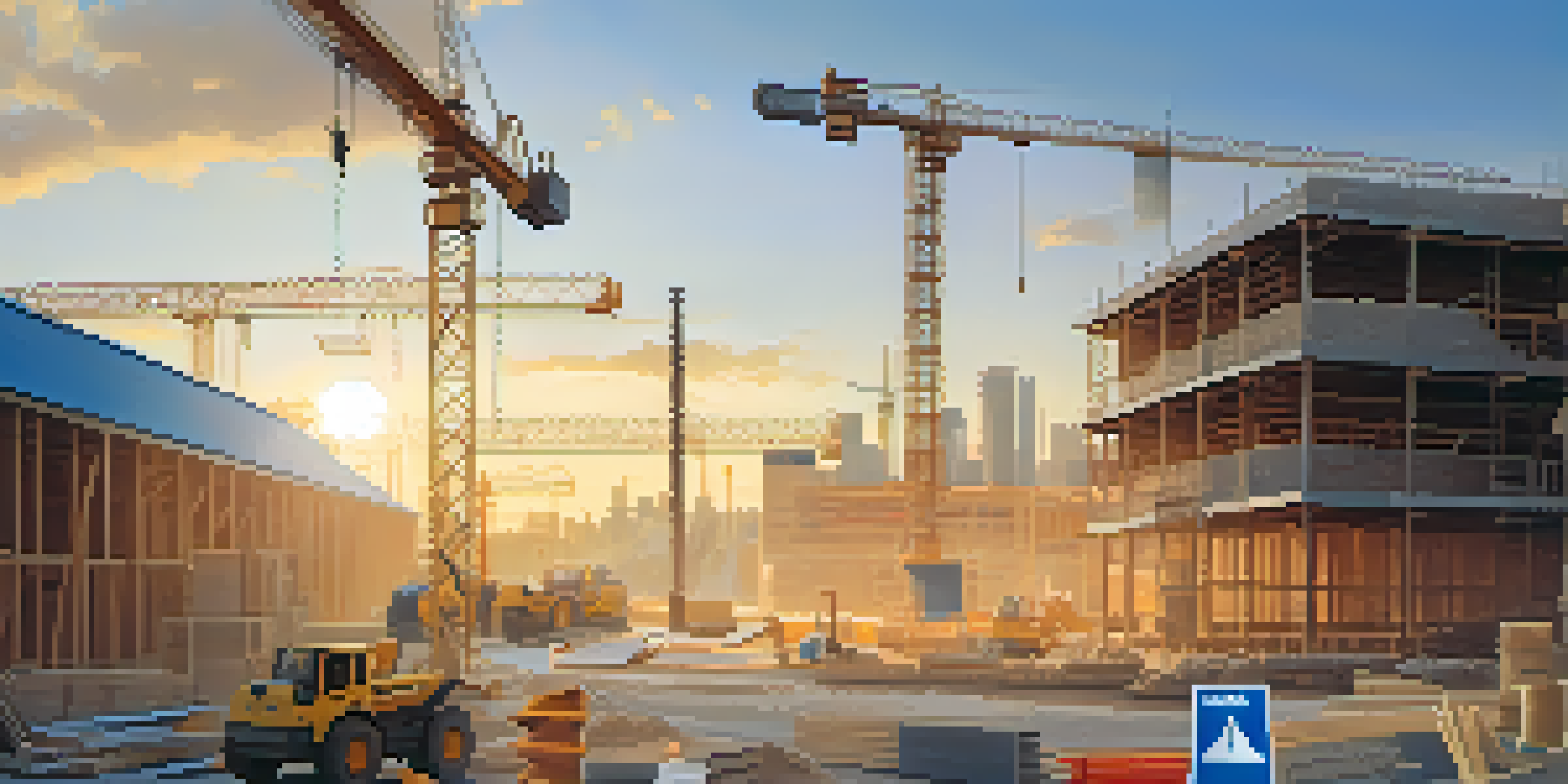Understanding Building Codes and Home Inspections

What Are Building Codes and Why Do They Matter?
Building codes are sets of regulations that dictate how structures should be built. They ensure safety, health, and general welfare in construction practices. Think of them as the rules of the road for builders, guiding everything from electrical wiring to plumbing.
Building codes are the foundation of a safe and sustainable built environment.
These codes vary by location, reflecting local building practices and environmental factors. For example, a home built in a hurricane-prone area will have stricter codes regarding wind resistance. Understanding these codes is crucial for homeowners to avoid potential legal issues and costly renovations down the line.
In essence, building codes are there to protect you and your investment. Ignoring them can lead to unsafe conditions and may result in fines or mandatory repairs. So, when undertaking a construction project, always check the local codes.
The Role of Home Inspections in Real Estate
Home inspections serve as a critical step in the buying or selling process. They provide an objective look at the property's condition, helping buyers make informed decisions. Imagine it as a health check-up for your home, uncovering issues that may not be immediately visible.

During an inspection, a professional will assess various aspects of the home, from the roof to the foundation. They’ll look for code violations, structural damage, and potential safety hazards. This thorough examination can save buyers from unexpected expenses in the future.
Building Codes Ensure Safety
Building codes are essential regulations that protect the safety, health, and welfare of individuals by guiding construction practices.
For sellers, a pre-inspection can be a valuable tool to address issues before listing. It can enhance buyer confidence and even expedite the sale process. Ultimately, home inspections are about ensuring peace of mind for all parties involved.
How Building Codes Evolve Over Time
Building codes are not static; they evolve based on new technologies, materials, and safety concerns. As communities grow and change, so do the regulations that govern construction. For instance, the rise of energy-efficient technologies has led to updated codes focusing on sustainability.
An ounce of prevention is worth a pound of cure.
These changes often arise from lessons learned in past construction failures or natural disasters. For example, after significant earthquakes, many regions have modified their codes to enhance seismic safety. Understanding these shifts can help homeowners and builders stay compliant and avoid future risks.
Keeping up with evolving codes can feel daunting, but it's essential for maintaining a safe living environment. Regular updates ensure that homes are equipped to handle modern challenges, making it vital for builders to stay informed.
Common Building Code Violations to Avoid
Even seasoned builders can run into building code violations if they're not careful. Common violations include improper electrical wiring, inadequate ventilation, and failure to meet structural requirements. These issues can lead to significant safety hazards and costly repairs, so it's crucial to avoid them.
For instance, inadequate smoke detector installation can not only violate codes but also jeopardize the safety of the home's occupants. Simple oversights, like not adhering to the required height for railings, can also lead to serious consequences. Being aware of these common pitfalls can help builders and homeowners alike.
Home Inspections Uncover Issues
Home inspections act as a critical evaluation of a property's condition, helping buyers and sellers identify potential problems before making decisions.
Before starting a project, it's wise to familiarize yourself with the local codes and consult with professionals. This proactive approach can save you from unnecessary headaches and ensure a compliant, safe structure.
Preparing for a Home Inspection: Tips and Tricks
Preparation is key when it comes to home inspections. Homeowners should take steps to ensure that their property is ready for a thorough examination. This might include decluttering spaces, ensuring easy access to attics and basements, and addressing minor repairs.
A clean and well-maintained home not only makes a good impression but can also lead to a smoother inspection process. For example, fixing leaky faucets or replacing burnt-out light bulbs can help demonstrate that the home has been well cared for. Small touches can make a big difference in the inspector's overall assessment.
Lastly, being transparent about the home's history, including previous repairs and upgrades, can foster trust. Home inspectors appreciate honesty, and knowing the background can help them focus on potential problem areas. Ultimately, preparation can lead to a more favorable inspection outcome.
Understanding the Inspection Report: What to Look For
After a home inspection, you'll receive a detailed report outlining the findings. Understanding this document is crucial, as it can highlight both minor issues and significant red flags. Pay attention to sections that detail code violations, structural concerns, and safety hazards.
A well-structured report will categorize issues based on severity, helping you prioritize repairs. For example, immediate concerns like electrical hazards should be addressed before cosmetic fixes like paint touch-ups. Knowing how to interpret the report can empower you to negotiate repairs or adjustments with the seller.
Compliance Prevents Future Risks
Maintaining compliance with building codes and conducting follow-up inspections is vital for ensuring safety and protecting your investment in a home.
Don't hesitate to ask questions about anything you don't understand. A good inspector will be happy to clarify the findings and offer insights on necessary actions. This knowledge can help you make informed decisions moving forward.
The Importance of Compliance and Follow-Up Inspections
Ensuring compliance with building codes isn't just a one-time task; it requires ongoing attention. After a home inspection, follow-up inspections might be necessary to confirm that repairs were made correctly. This is especially important for significant issues like electrical or plumbing work.
Compliance helps maintain the safety and structural integrity of your home. If repairs aren't up to code, you could face legal issues or even jeopardize your insurance coverage. Regular follow-ups can help catch any new problems before they escalate.

Ultimately, staying compliant with building codes and conducting regular inspections can protect your investment and your peace of mind. It’s about creating a safe environment for you and your loved ones, ensuring your home remains a haven for years to come.